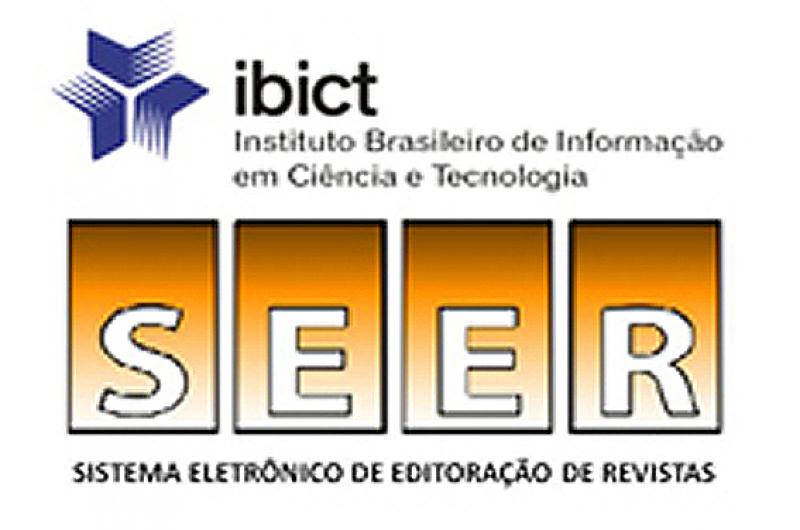Decomposition and nutrient release from manure depends on the depth and duration of incorporation
Visualizações: 603DOI:
https://doi.org/10.31416/rsdv.v2i1.188Keywords:
organic agriculture, nutrient cycling, organic management the soilAbstract
This study aimed to study the decomposition and nutrient release in two manure incorporated at different depths over time. The treatments resulting from the combination of the two manure (cattle and goats) and four depths (0-10, 10-20, 20-30 and 30-40 cm) and five times (30, 60, 90, 120 and 210 day) were arranged in randomized blocks
with three replications. It was found that the decomposition increases with the depth and the time of incorporation. The release of N did not vary between the depths of incorporation. The amount of N released in the manure increased over time, as in goat manure was observed a higher initial release within thirty days, followed by immobilization to 90 days. The release of P in both manure increased with time of incorporation, this being higher in goat manure. The P released
in manure varies with the depth of incorporation. The amount of released K did not vary between the depths, this nutrient was soon released.
References
AITA, C.; GIACOMINI, S. J. Decomposição e liberação de nitrogênio de resíduos culturais de plantas de cobertura de solo solteiras e consorciadas. Revista Brasileira de Ciência do Solo, 27: 601-612, 2003.
ALEXANDER, M.I.H. Introduction to soil microbiology. 4.ed. New York, John Wiley, 1967. 472p.
BAYER, C.; MIELNICZUK , J. Sistemas de preparo do solo e características espectroscópicas da matéria orgânica em ambientes tropicais e subtropicais. Boletim de Pesquisa e Desenvolvimento, ISSN 1678-0434; 12, 2005. 16 p.
CHAVEZ, B.; DE NEVE, S.; HOFMAN, G.; BOECKX, P. CLEEMPUT, O. V. Nitrogen mineralization of vegetable root residues and green manures as related to their (bio)chemical composition. European Journal of Agronomy, 2: 161 -170, 2004.
CHOUDHURY, M. M.; COSTA, T. S. da. 2003. Mercado e produção de hortifrutícolas orgânicos. Petrolina, PE: Embrapa Semi-Árido, 2003. 31 p. (Embrapa Semi-Árido. Documentos, 182).
CODEVASF. Companhia de Desenvolvimento dos Vales do São Francisco e do Paranaíba. Vale do São Francisco: regiões fisiográficas, 2006. Disponível em:< http://www.codevasf.gov.br/osvales/vale-do-sao-francisco/recus/submedio-sao-francisco>. Acesso em: 15 de outubro de 2009.
CORREIA, M. E. F.; ANDRADE, A. G. Formação de serrapilhaira e ciclagem de nutrientes. In: SANTOS, G. A. et al. [Eds.]. Fundamentos da matéria orgânica do solo. Porto Alegre: Metropole, 2008. p. 137-170.
DUENHAS, L. H. 2004. Cultivo orgânico de melão: aplicação de esterco e de biofertilizantes e substâncias húmicas via fertilizantes. Tese de Doutorado. Universidade de São Paulo, ESALQ, Piracicaba.
EGHBALL, B.; WIENHOLD, B. J.; GILLEY, J. E.; EIGENBERG, R. A. Mineralization of Manure Nutrients. Journal of Soil and Water Conservation, 57:469-473, 2002.
ESSE, P.C.; BUERKERT, A.; HIERNAUX, A. ; ASSA, A. Decomposition of and nutrient release from ruminant manure on acid sandy soils in the Sahelian zone of Niger, West Africa. . Ecosys. Environ, 83:55-63, 2001.
FARIA, C. M. B.; SOARES, J. M.; LEAO, P. C. S.. 2004. Adubação verde com leguminosas em videira no submédio São Francisco. Revista Brasileira de Ciencia do Solo, 28:641-648, 2004
GAVA, C. A. T.; DUENHAS, L. H. ; LOPES, D. B. ; PINTO, J. M. ; GOMES, T. C. A. 2004 Incidência de oídio em melão conduzido em sistema orgânico fertirrigado com substâncias húmicas e biofertilizantes. Horticultura Brasileira, 22, 2004.
KWABIAH, A. B.; STOSKOPF, N. C; VORONEY, R. P.; PALM C. A. Nitrogen and Phosphorus Release from Decomposing Leaves under Sub-Humid Tropical Conditions. Biotropica the Journal Tropycal Biology and conservation, 33: 229 -240, 2000.
LARCHER, W. Ecofisiologia Vegetal. São Carlos: Rima Artes e Textos, 2000. 531p.
MENDONÇA, E.S.; STOTT, D.E. Characteristics and decomposition rates of pruning residues from a shaded coffee system in Southeastern Brazil. Agroforestry Systems, Amsterdam, 57: 117-125, 2003.
MENESES, O.B. Efeitos de doses de esterco no rendimento do feijão-de-corda e do milho em cultivos isolados e consorciados. Mossoró: ESAM, 1993. (Dissertação de mestrado).
MESSIAS, A. S.; SILVA, C. A. A. Microrganismos degradadores de resíduos sólidos. IN: FIGUEIREDO, M. V. B. et al. [Eds]. Microrganismos e biodiversidade: o novo desafio para a agricultura. Guaíba: Agrolivros, 2008. p. 423- 440.
MOREIRA, F. M. S.; SIQUEIRA, J. O. Transformações bioquímicas e ciclos dos elementos no solo. In: MOREIRA, F. M. S.; SIQUEIRA, J. O. Microbiologia e bioquímica do solo. 2 ed. Lavras: UFLA, 2006. p. 213-220.
NOGUEIRA, A. R. A. et al. Tecido vegetal. In: NOGUEIRA, Ana Rita A.; SOUZA, Gilberto B. de. Manual de Laboratórios: Solo, água, nutrição vegetal, nutrição animal e alimentos. São Carlos: Embrapa Pecuária Sudeste, 2005. p: 139-175.
PETERSEN, S.O.; LIND, A.M. & SOMMER, S.G. Nitrogen and organic matter losses during storage of cattle and pig manure. The Journal of Agricultural Science, 130:69-79, 1998.
SOLTO, P.C. et al. Decomposição de estercos dispostos em diferentes profundidades em área degradada no semiárido da Paraíba. Revista Brasileira de Ciência do Solo, 29:125-130, 2005.
THÖNNISSEN, C. ; MIDMORE, D.j.; LADHA, J. K.; OLK, D. C.; SCHMIDHALTER, U. Legume decomposition and nitrogen release when applied as green manures to tropical vegetable production systems. Agronomy Journal, 92: 253-260, 2000.
VITTI, G.C.; HOLANDA, J.S.; SERQUEIRA LUZ, P.H.; HERNANDEZ, F.B.T.; BOARETTO, A.E. & PENTEADO, S.R. Fertirrigação: condições e manejo. In: REUNIÃO BRASILEIRA DE FERTILIDADE DO SOLO E NUTRIÇÃO DE PLANTAS, 21., Petrolina, 1995. Anais. Petrolina, Sociedade Brasileira de Ciência do Solo, 1995. p.195-271.
WIEDER, R. K.; LANG, G. E. A critique of the analytical methods used in examining decomposition data obtained from litter bags. Ecological Society of America, 63: 1636-1642, 1982.
ZILBILSKE, L.M. Dynamics of nitrogen and carbon in soil during papermill sludge decomposition. Soil Science, 143:26-33, 1987.















